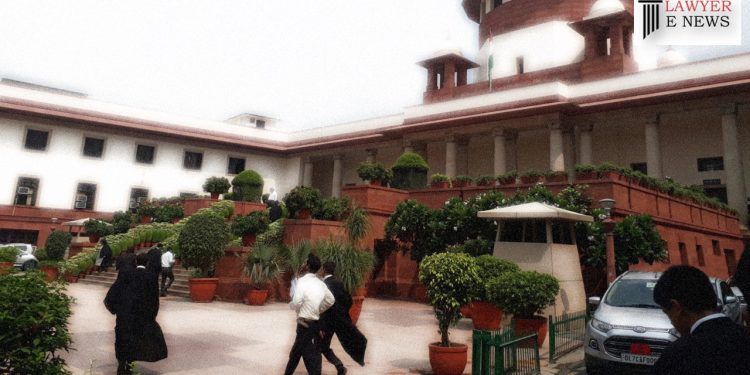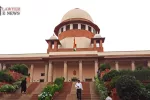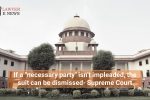Acquittal in Murder Case: Identification of the Appellant by PW-6 in the Court is Not Free from Reasonable Doubt: Supreme Court

In a landmark decision, the Supreme Court of India overturned the conviction of Mohd. Rijwan, who was earlier sentenced to life imprisonment under Sections 302 and 201 of the Indian Penal Code (IPC) by both the Sessions Court and the High Court.
The bench, comprised of Justices Abhay S. Oka and Pankaj Mithal, delivered the verdict today, stating that the prosecution had failed to prove its case “beyond a reasonable doubt.” The Court highlighted several gaps in the prosecution’s case, primarily based on circumstantial evidence.
Commenting on the crucial aspect of witness identification, Justice Abhay S. Oka observed, “the identification of the appellant by PW-6 in the court is not free from reasonable doubt.” The Court noted that instead of holding a test identification parade, the key witness, PW-6, was shown the appellant in the office of the Superintendent of Police, which makes his courtroom identification doubtful.
The prosecution’s case was primarily anchored on two points: that the deceased and the appellant were last seen together and that the deceased’s body was recovered at the appellant’s instance. The Court remarked that “the important circumstance of the last seen together has not been established,” thereby dismantling the foundational elements of the prosecution’s argument.
Another key gap in the prosecution’s case was its failure to examine Hari Chand Sharma, an important witness who could have supported the ‘last seen together’ theory. “The prosecution has offered no explanation for the failure to examine this important witness,” Justice Oka noted.
The Court concluded that “the prosecution has failed to prove the charges against the appellant beyond a reasonable doubt,” and therefore acquitted Mohd. Rijwan. His bail bonds have been subsequently canceled.
Legal experts view this judgement as a significant affirmation of the need for meticulous scrutiny in cases based on circumstantial evidence.
The judgement does not specify any referred cases or representing advocates.
Date of Decision: October 13, 2023.
Mohd. Rijwan vs State of Haryana






